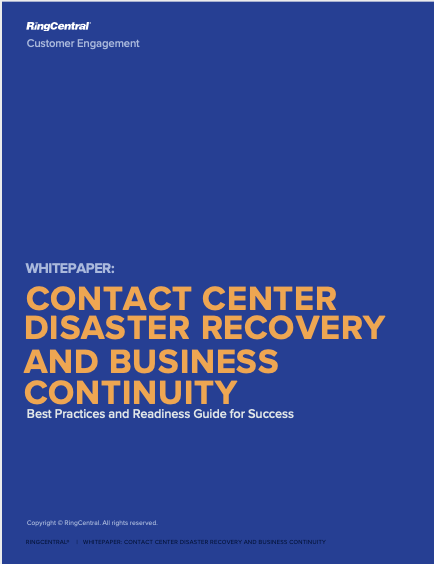Contact Center Disaster Recovery and Business Continuity

Communication is often considered the lifeblood of business. However, many business functions can continue without phones. This is not the case with a contact center. If a disaster takes down the calling capabilities and other communication channels used by agents, the contact center grinds to a halt. The damage this downtime can cause to the brand reputation, customer loyalty, and top-line revenue can be dramatic.
This makes disaster recovery and business continuity planning a must for anyone in charge of contact center operations, as well as for IT leaders who must support the infrastructure. The high cost and inherent vulnerability of on-premises contact center hardware explain why many companies are moving to the cloud. And even in companies that are currently tied to investments in on-premises systems, the cloud offers an excellent and highly cost-effective way to provide redundancy. Hosted cloud contact center solutions—especially those with enterprise-class mobile technologies—further offer the critical capability for agents to switch over to mobile devices in a disaster.
Cloud contact center solutions provide the best way for your business to plan for and survive disaster. A well-architected approach not only houses all the contact center infrastructure and your critical data away from potential disaster sites but also ensures high availability by employing a state-of-the-art network required to bypass local problems.


